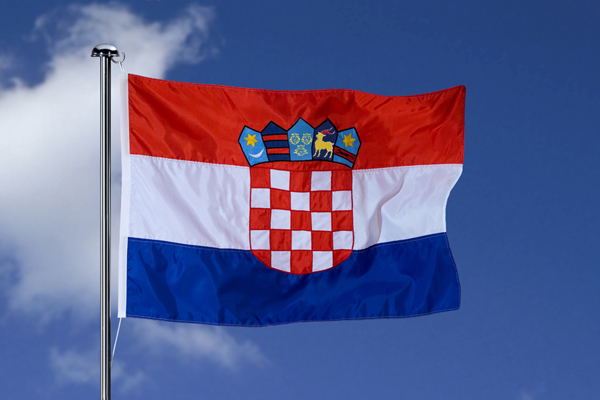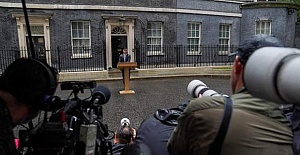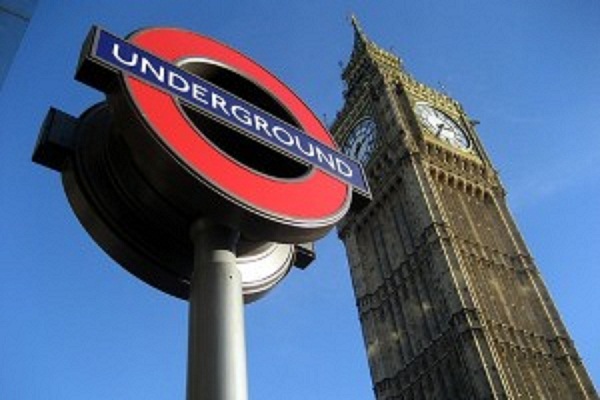The European Commission gave Croatia a clean bill of health on Tuesday in its final check before the Balkan state joins the EU in July, but said it would keep watch over corruption and crime. Marking the end of Zagreb's decade-long effort to join mainstream Europe, European Union Enlargement Commissioner Stefan Fuele said Croatia had met expectations. "Croatia has fulfilled all the conditions for joining ... I think it is an excellent example to other candidate countries," Fuele told a Croatian government session where he presented the final monitoring report. Croatia will be the bloc's first new member since Bulgaria and Romania joined in 2007. The other EU hopefuls in the Balkans - Serbia, Macedonia, Bosnia, Montenegro, Albania, and Kosovo - have yet to start entry talks.
Zagreb concluded EU accession talks in June 2011 and will join on July 1, once its accession treaty has been ratified by all current 27 members. In the past two years, the government was required to complete the restructuring and sale of its ailing shipyards and resolve a banking dispute with Slovenia.
While the Commission's report was largely positive about Croatia's readiness to become the 28th EU member, its language on fighting organised crime was less glowing.
It said Croatia's legal framework to deal with organised crime and corruption was adequate, but some changes to the legal system had not been fully implemented or were being used half-heartedly.
Croatia needed to use tougher sentencing to deter crime, the report said, noting that convicted criminals often face only suspended sentences.
An EU official said the Commission would watch corruption, but the bloc was convinced Croatia was on the right path.
"We believe that the process itself has been solid and credible, and that the process that has started in Croatia is irreversible."
He said the situation in Croatia was different to Romania and Bulgaria, whose efforts to fight corruption and improve the rule of law are still under European Commission monitoring.
Croatia, like Romania and Bulgaria, will not automatically become a member of the passport-free Schengen zone, but Croats will have the right to seek work in other EU member states, unless they impose a restriction of up to seven years like they did in 2007.
The seven-year restrictions on the movement of Romanians and Bulgarians in the European Union are due to expire at the beginning of 2014.
Although EU countries could request Croatia be given the same type of seven-year movement restrictions, EU officials said no country had made that request.
The Commission report will be presented to EU countries for approval, as well as the European Parliament, which will discuss Croatia on April 18.
EU clears Croatia for July entry
Zagreb concluded EU accession talks and will join on July 1
27 Mart 2013 Çarşamba 01:25
reads.




 Advice for Enfield residents ahead of the General Election
Advice for Enfield residents ahead of the General Election Sunak promises tax cuts, economic stability, Conservative Party election manifesto
Sunak promises tax cuts, economic stability, Conservative Party election manifesto Ertan Karpazli, an independent MP candidate for the Enfield North constituency
Ertan Karpazli, an independent MP candidate for the Enfield North constituency Rishi Sunak announces a general election in a statement outside Downing Street
Rishi Sunak announces a general election in a statement outside Downing Street Residents of Spanish island of Mallorca launch initiative to thank tourists amid protests over mass tourism
Residents of Spanish island of Mallorca launch initiative to thank tourists amid protests over mass tourism Srebrenica Remembered, Lessons for Justice and Peace! YEE London held a reflective event
Srebrenica Remembered, Lessons for Justice and Peace! YEE London held a reflective event British Premier Keir Starmer to reset UK-EU relations with high-profile meetings
British Premier Keir Starmer to reset UK-EU relations with high-profile meetings Voters head to polls for UK general election
Voters head to polls for UK general election The Swiss official will take charge of the match between Real Madrid and Atalanta in Warsaw
The Swiss official will take charge of the match between Real Madrid and Atalanta in Warsaw Applications are now open for Walking and Cycling Grants London until 9 September 2024
Applications are now open for Walking and Cycling Grants London until 9 September 2024  Two Circles also appointed as exclusive media sales agency for UEFA Women’s Champions League
Two Circles also appointed as exclusive media sales agency for UEFA Women’s Champions League  England manager Gareth Southgate has resigned two days after defeat by Spain
England manager Gareth Southgate has resigned two days after defeat by Spain Joyce and Snell's planning application gets stamp of approval
Joyce and Snell's planning application gets stamp of approval The amount of bounce back loans fully repaid is just %13
The amount of bounce back loans fully repaid is just %13 Petrol prices higher than they should be, says RAC
Petrol prices higher than they should be, says RAC UEFA and Mastercard renew UEFA Champions League partnership
UEFA and Mastercard renew UEFA Champions League partnership




















